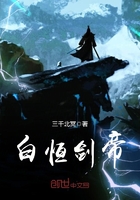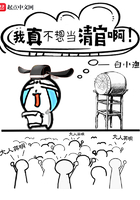The wind fell, and for some minutes a heavy shower of rain plumped vertically into the trench. Once during it a sudden illumination blazed in the sky, and he saw the pebbles in the wall opposite shining with the fresh-falling drops. There were a dozen rifle-shots and he saw the sentry who had just passed brushing the edge of his coat against Michael's hand, pause, and look out through the spy-hole close by, and say something to himself. Occasionally he dozed for a little, and woke again from dreaming of Sylvia, into complete consciousness of where he was, and of that superb joy that pervaded him. By and by these dozings grew longer, and the intervals of wakefulness less, and for a couple of hours before he was roused he slept solidly and dreamlessly.
His spell of duty began before dawn, and he got up to go his rounds, rather stiff and numb, and his sleep seemed to have wearied rather than refreshed him. In that hour of early morning, when vitality burns lowest, and the dying part their hold on life, the thrill that had possessed him during the earlier hours of the night, had died down. He knew, having once felt it, that it was there, and believed that it would come when called upon; but it had drowsed as he slept, and was overlaid by the sense of the grim, inexorable side of the whole business. A disconcerting bullet was plugged through a spy-hole the second after he had passed it; it sounded not angry, but merely business-like, and Michael found himself thinking that shots "fired in anger," as the phrase went, were much more likely to go wide than shots fired calmly. . . .
That, in his sleepy brain, did not sound nonsense: it seemed to contain some great truth, if he could bother to think it out.
But for that, all was quiet again, and he had returned to his dug-out, just noticing that the dawn was beginning to break, for the clouds overhead were becoming visible in outline with the light that filtered through them, and on their thinner margin turning rose-grey, when the alarm of an attack came down the line.
Instantly the huddled, sleeping bodies that lay at the side of the trench started into being, and in the moment's pause that followed, Michael found himself fumbling at the butt of his revolver, which he had drawn out of its case. For that one moment he heard his heart thumping in his throat, and felt his mouth grow dry with some sudden panic fear that came from he knew not where, and invaded him. A qualm of sickness took him, something gurgled in his throat, and he spat on the floor of the trench. All this passed in one second, for at once he was master of himself again, though not master of a savage joy that thrilled him--the joy of this chance of killing those who fought against the peace and prosperity of the world. There was an attack coming out of the dark, and thank God, he was among those who had to meet it.
He gave the order that had been passed to him, and on the word, this section of the trench was lined with men ready to pour a volley over the low parapet. He was there, too, wildly excited, close to the spy-hole that now showed as a luminous disc against the blackness of the trench. He looked out of this, and in the breaking dawn he saw nothing but the dark ground of the dip in front, and the level lines of the German trenches opposite. Then suddenly the grey emptiness was peopled; there sprang from the earth the advance line of the surprise, who began hewing a way through the entanglements, while behind the silhouette of the trenches was broken into a huddled, heaving line of men. Then came the order to fire, and he saw men dropping and falling out of sight, and others coming on, and yet again others. These, again, fell, but others (and now he could see the gleam of bayonets) came nearer, bursting and cutting their way through the wires. Then, from opposite to right and left sounded the crack of rifles, and the man next to Michael gave one grunt, and fell back into the trench, moving no more.
Just immediately opposite were the few dozen men whose part it was to cut through the entanglements. They kept falling and passing out of sight, while others took their places. And then, for some reason, Michael found himself singling out just one of these, much in advance of the others, who was now close to the parapet. He was coming straight on him, and with a leap he cleared the last line of wire and towered above him. Michael shot him with his revolver as he stood but three yards from him, and he fell right across the parapet with head and shoulders inside the trench. And, as he dropped, Michael shouted, "Got him!" and then he looked. It was Hermann.
Next moment he had scaled the side of the trench and, exerting all his strength, was dragging him over into safety. The advance of this section, who were to rush the trench, had been stopped, and again from right and left the rifle-fire poured out on the heads that appeared above the parapet. That did not seem to concern him;all he had to do that moment was to get Hermann out of fire, and just as he dragged his legs over the parapet, so that his weight fell firm and solid on to him, he felt what seemed a sharp tap on his right arm, and could not understand why it had become suddenly powerless. It dangled loosely from somewhere above the elbow, and when he tried to move his hand he found he could not.
Then came a stab of hideous pain, which was over almost as soon as he had felt it, and he heard a man close to him say, "Are you hit, sir?"It was evident that this surprise attack had failed, for five minutes afterwards all was quiet again. Out of the grey of dawn it had come, and before dawn was rosy it was over, and Michael with his right arm numb but for an occasional twinge of violent agony that seemed to him more like a scream or a colour than pain, was leaning over Hermann, who lay on his back quite still, while on his tunic a splash of blood slowly grew larger. Dawn was already rosy when he moved slightly and opened his eyes.
"Lieber Gott, Michael!" he whispered, his breath whistling in his throat. "Good morning, old boy!"















